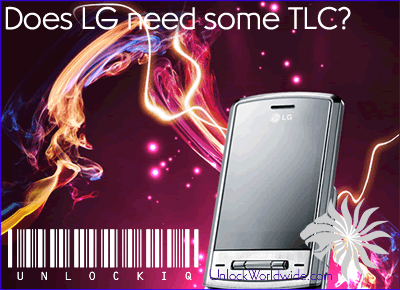
Certainly Some Tender Loving Care Wouldn’t Hurt the LG Mobile Phone Division
South Korean electronics giant LG was featured in an article published this week in the Guardian Technology section. Charles Arthur commented on the difficulties that have plagued LG Electronics over six consecutive quarters.
LG – Cause and Effect
The fundamental problem for LG has been losses incurred by the company’s smartphone product which run on either Google Android or Windows 7 operating systems.
LG have failed to unlock a smartphone model capable of capturing the public’s imagination. Sales of the Optimum range in this year’s third quarter exceeded 5 million units, surpassing Sony Ericsson, but lagged far behind Apples iPhone and Samsung’s Galaxy whose combined sales reached 35 million units.
LG Mobile – Sales Trends
LG seem to have suffered from a difficult to predict phenomena: the high-end smartphone purchaser flocked to Apple (and to some degree Samsung) in unprecedented numbers while low-end smartphone buyers discovered Chinese entrant ZTE (to name but one). What was unpredicted was a near absence of any middle ground; bad news for LG Mobile and quite possibly other cellular phone manufacturers such as HTC.
LG – Long Term Predictions
Charles Arthur cited a couple of industry analysts who viewed LG Mobile’s long term prognosis as not dissimilar to previous strugglers in the industry who, while recovering from losses, have failed to regain market dominance or previous levels of profit. Both Sony Ericsson and Motorola spring to mind, as does Nokia.
LG – Why Is Profitability Important?
Sounds like a dumb question; every business needs to be profitable. However, in terms of long-term success in the mobile phone industry, for LG unlocking that PERCEIVED profitability may be even more important.
The perception of success influences a distributors decision on levels of stock as they struggle to balance unpredictable sales cycles and avoid expensive obsolete inventory.
The Analysts Opinion on LG
The analyst Horace Dediu of Asymco observed that because of technology cycle time, rapid business model evolution and low barriers to entry, there will be great rivalry between competitors.
In a strategy designed to placate analysts and the market LG opted for a rights issue aimed at securing ample resources that can improve competitiveness of their core business(s) and regain initiatives.
The Market Response on LG
The prevailing opinion was that a rights issue was preferable to either borrowing or issuing bonds. Regrettably losses in other LG divisions soured both the market response and subsequently the rating by agencies such as Moody’s.
LG share prices have since suffered a severe decline.
In Conclusion
Unlike Research In Motion (RIM) who have limited themselves to the fabled BlackBerry, LG are a broad based manufacturer with interest in consumer electronics, telecommunications and chemicals.
What they do have in common has been an inability, notwithstanding strong customer support, to keep ahead of technical innovation. With other established LG products also losing money it is possible that the patient may not recuperate.
Tender Loving Care is in order, but the influx of cash that may be needed at LG mobile to cure the ailment may not be available or affordable. As always, time will tell.

